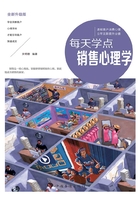"If it gets into the hands of the Emperor it may cause misunderstandings, and unpleasant questions may be asked," he thought as he read. Then he put the petition on the table, rang, and ordered Nekhludoff to be asked in.
He remembered the case of the sectarians; he had had a petition from them before. The case was this: These Christians, fallen away from the Greek Orthodox Church, were first exhorted and then tried by law, but were acquitted. Then the Archdeacon and the Governor arranged, on the plea that their marriages were illegal, to exile these sectarians, separating the husbands, wives, and children. These fathers and wives were now petitioning that they should not he parted. Toporoff recollected the first time the case came to his notice: he had at that time hesitated whether he had not better put a stop to it. But then he thought no harm could result from his confirming the decision to separate and exile the different members of the sectarian families, whereas allowing the peasant sect to remain where it was might have a bad effect on the rest of the inhabitants of the place and cause them to fall away from Orthodoxy. And then the affair also proved the zeal of the Archdeacon, and so he let the case proceed along the lines it had taken. But now that they had a defender such as Nekhludoff, who had some influence in Petersburg, the case might be specially pointed out to the Emperor as something cruel, or it might get into the foreign papers. Therefore he at once took an unexpected decision.
"How do you do?" he said, with the air of a very busy man, receiving Nekhludoff standing, and at once starting on the business. "I know this case. As soon as I saw the names I recollected this unfortunate business," he said, taking up the petition and showing it to Nekhludoff. "And I am much indebted to you for reminding me of it. It is the over-zealousness of the provincial authorities."
Nekhludoff stood silent, looking with no kindly feelings at the immovable, pale mask of a face before him.
"And I shall give orders that these measures should he revoked and the people reinstated in their homes."
"So that I need not make use of this petition?"
"I promise you most assuredly," answered Toporoff, laying a stress on the word I, as if quite convinced that his honesty, his word was the best guarantee. "It will be best if I write at once.
Take a seat, please."
He went up to the table and began to write. As Nekhludoff sat down he looked at the narrow, bald skull, at the fat, blue-veined hand that was swiftly guiding the pen, and wondered why this evidently indifferent man was doing what he did and why he was doing it with such care.
"Well, here you are," said Toporoff, sealing the envelope; "you may let your clients know," and he stretched his lips to imitate a smile.
"Then what did these people suffer for?" Nekhludoff asked, as he took the envelope.
Toporoff raised his head and smiled, as if Nekhludoff's question gave him pleasure. "That I cannot tell. All I can say is that the interests of the people guarded by us are so important that too great a zeal in matters of religion is not so dangerous or so harmful as the indifference which is now spreading--"
"But how is it that in the name of religion the very first demands of righteousness are violated--families are separated?"
Toporoff continued to smile patronisingly, evidently thinking what Nekhludoff said very pretty. Anything that Nekhludoff could say he would have considered very pretty and very one-sided, from the height of what he considered his far-reaching office in the State.
"It may seem so from the point of view of a private individual," he said, "but from an administrative point of view it appears in a rather different light. However, I must bid you good-bye, now," said Toporoff, bowing his head and holding out his hand, which Nekhludoff pressed.
"The interests of the people! Your interests is what you mean!" thought Nekhludoff as he went out. And he ran over in his mind the people in whom is manifested the activity of the institutions that uphold religion and educate the people. He began with the woman punished for the illicit sale of spirits, the boy for theft, the tramp for tramping, the incendiary for setting a house on fire, the banker for fraud, and that unfortunate Lydia Shoustova imprisoned only because they hoped to get such information as they required from her. Then he thought of the sectarians punished for violating Orthodoxy, and Gourkevitch for wanting constitutional government, and Nekhludoff clearly saw that all these people were arrested, locked up, exiled, not really because they transgressed against justice or behaved unlawfully, but only because they were an obstacle hindering the officials and the rich from enjoying the property they had taken away from the people. And the woman who sold wine without having a license, and the thief knocking about the town, and Lydia Shoustova hiding proclamations, and the sectarians upsetting superstitions, and Gourkevitch desiring a constitution, were a real hindrance. It seemed perfectly clear to Nekhludoff that all these officials, beginning with his aunt's husband, the Senators, and Toporoff, down to those clean and correct gentlemen who sat at the tables in the Ministry Office, were not at all troubled by the fact that that in such a state of things the innocent had to suffer, but were only concerned how to get rid of the really dangerous, so that the rule that ten guilty should escape rather than that one innocent should be condemned was not observed, but, on the contrary, for the sake of getting rid of one really dangerous person, ten who seemed dangerous were punished, as, when cutting a rotten piece out of anything, one has to cut away some that is good.
This explanation seemed very simple and clear to Nekhludoff; but its very simplicity and clearness made him hesitate to accept it.
Was it possible that so complicated a phenomenon could have so simple and terrible an explanation? Was it possible that all these words about justice, law, religion, and God, and so on, were mere words, hiding the coarsest cupidity and cruelty?















